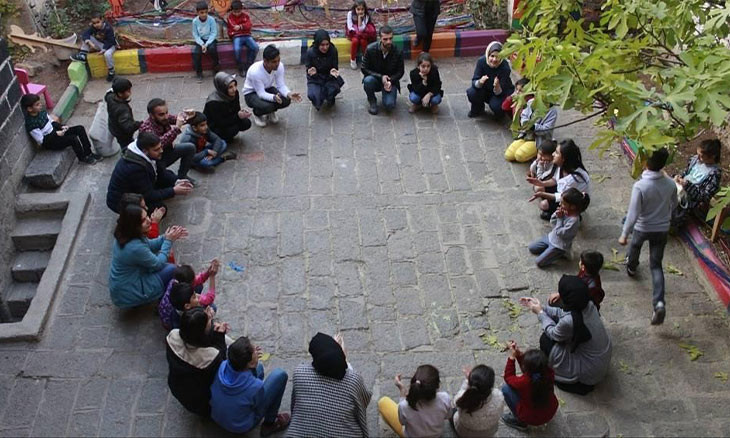On National Children's Day, one in three children in Turkey found to be living in poverty
A report by the main opposition Republican People's Party (CHP) prepared on the occasion of National Children's Day indicates that one in three children in Turkey lives in poverty. According to the report in 2019 the number of children in Turkey between the ages of 15-17 who were in the workforce reached 720,000.
Serkan Alan / DUVAR
On the occasion of the April 23 National Sovereignty and Children's Day, the main opposition Republican People's Party (CHP) has prepared a report regarding the living conditions of children in Turkey. Amongst others things, the report indicates that one in three children in Turkey lives in poverty.
The report, entitled “Our children are poor and victimized under the [ruling Justice and Development Party] AKP regime,” put forward a number of grim figures with regards to the children in Turkey. It showed that between 2013 and 2018, 319 children had died whilst working. Last year alone, the number of children that died on the job was 67, 29 of which were under 14. In 2019, the number of children between the ages of 15-17 that were employed reached 720,000.
The coronavirus pandemic in Turkey has exacerbated the conditions of poor, working youth in Turkey. According to the report, 45 percent of those employed work in the service sector, and a large segment have lost their jobs following the closure of their workplaces due to the epidemic. Following a curfew that restricts those under 20 from leaving their homes, those employed were granted administrative leave, though that does not apply to the thousands of children who work covertly.
Figures from 2018 show that 137,482 children in Turkey suffered different crimes, 59 percent of which were physical abuse and 13 percent of which were sexual abuse. On the other hand, in 2019, more than 90,000 children were tried for crimes in court with upwards of 9,000 being convicted of crimes in heavy penalty courts.
The report also highlighted the fact that the education system has changed 16 times in the 18 years that the AKP has been in power, and that the government has not done anything to effectively improve the country’s education standards. Numerous changes regarding standardized testing, which is heavily prioritized in the country's education system, have been made during these years, thereby contributing to a precarious and unstable situation for students.
The CHP's report cited official statistics showing that as of 2017, five percent of official marriages in Turkey involved girls aged 16-17, despite the fact that the minimum legal age to marry in Turkey is 17.
The also CHP emphasized in its report that its goal was to structure the country's education system to benefit the country's children on the basis that one of a social state's fundamental rights is to provide free, accessible and universal education for children. It said it aimed to close the gap in quality between schools in different regions of the country, and to reopen shuttered schools in villages.
 COVID-19 isolation reminds children in Diyarbakır's Sur of life under curfew, triggers stress
COVID-19 isolation reminds children in Diyarbakır's Sur of life under curfew, triggers stress
